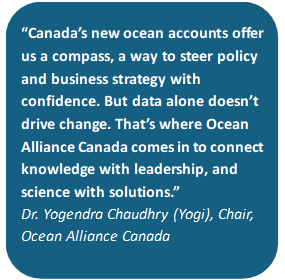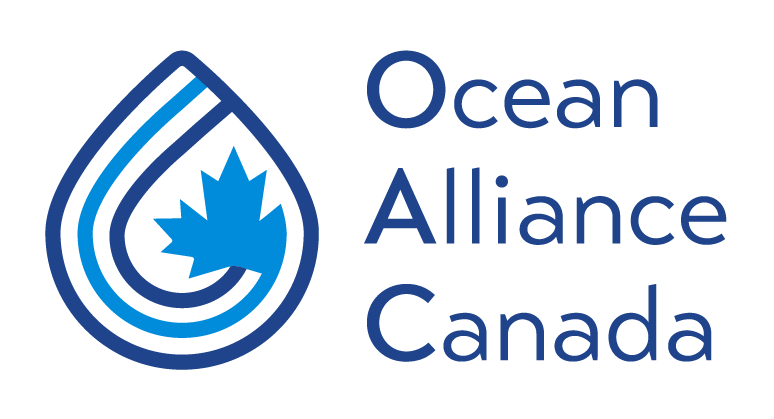By Dr. Yogendra Chaudhry, Chair, Ocean Alliance Canada (OAC)
Why Accounting for the Ocean is More Than Just Numbers
When most people think of “accounting,” ocean policy isn’t what comes to mind. But Canada is quietly changing that.
On June 17, Statistics Canada released a landmark update through its Census of Environment: a new set of Ocean Condition Accounts designed to track how our marine ecosystems are changing over time.
This isn’t just data, it’s a new framework for decision-making, aligning ocean governance with science, sustainability, and economic planning.
Welcome to the future of evidence-based ocean policy.
What Is Ocean Accounting, and Why Does It Matter?
Ocean accounting is a way of systematically measuring the condition of marine ecosystems and the services they provide, like food production, carbon sequestration, and biodiversity protection.
Using satellite data and long-term trends, the new release tracks:
- Sea Surface Temperature (SST): warming trends across all Canadian marine bioregions
- Chlorophyll-a: a proxy for phytoplankton productivity
- Particulate Organic Carbon (POC): carbon cycling in ocean food webs
The System of Environmental-Economic Accounting (SEEA) approach used in this data set helps us quantify the natural capital of Canada’s oceans. That means more informed ocean policy, better climate adaptation, and smarter marine industry strategies.
Why This Data Should Reshape Ocean Policy
The Ocean Condition Account offers long-term, spatially explicit data—exactly what’s needed to make high-stakes decisions around:
- Marine Protected Areas and biodiversity strategies
- Fisheries quota and ocean harvesting thresholds
- Infrastructure planning for rising sea levels
- Clean tech investment and emissions reduction pathways
This is especially crucial for Indigenous coastal communities, researchers, and small ocean-based businesses who rely on predictable, transparent, and science-backed policy environments.

OAC’s Role: Bridging Data with Action
Ocean Alliance Canada sees this development not just as a data set, but as a strategic signal.
We are working to:
- Bridge the gap between science and industry, translating ocean accounting data into real-world decisions
- Promote data literacy across sectors through webinars, training, and applied research partnerships
- Support emerging professionals with access to digital tools, modeling software, and ecosystem services thinking
What’s Next: Let’s Build a National Dialogue
OAC will be hosting a discussion on ocean data governance and marine natural capital at our next OAC meet in September. We’ll bring together voices from Indigenous communities, academia, industry, and government to explore how we turn metrics into movement.
In the meantime, we invite you to:
- Join our mailing list to stay informed
- Explore our working groups in ocean policy, blue innovation, and environmental intelligence
- Connect with us if your organization uses or contributes to ocean data
More on Ocean Accounting
View StatsCan’s Ocean Condition Account release (June 17, 2025)
Learn about the System of Environmental-Economic Accounting (SEEA)



